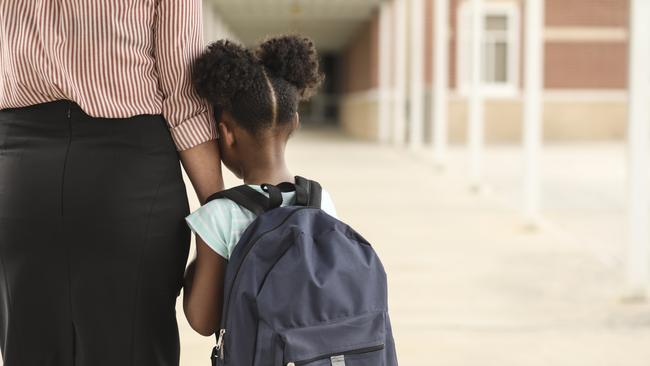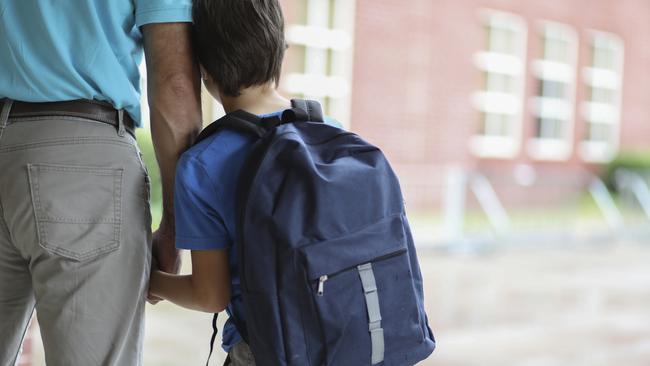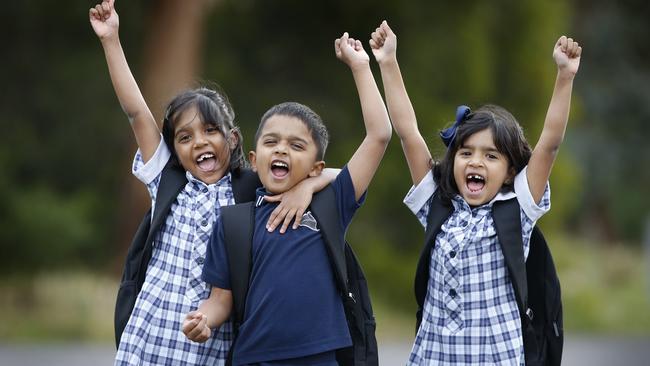Judith Locke: How to help kids returning to school
Parents may be well and truly ready for the reopening of schools, but not all of our children are. Which is why parents need to come up with a strategy for every child, writes Dr Judith Locke.

Rendezview
Don't miss out on the headlines from Rendezview. Followed categories will be added to My News.
Slowly, across the country, children are going to be heading back to school.
Every state is different in their back to school plan, but by end of May or June, all students will be back in the classroom, due to the federal and state governments’ decisions that it is safe for them to return.
This will be good news for many children who are completely over the long days at home, the lack of face-to-face time with their friends and teachers, and the boredom of the
unchanging scenery of their bedroom and living room.
But I’m sure that some will be uncomfortable about returning to school. This won’t be just
because of a fear of the virus, but because they prefer their home environment and have
become used to the school-at-home situation.
In my experience, there are two main reasons why children tend to push back on going to
school – anxiety and wilfulness. In this pandemic, these traits may have become more
pronounced.

Anxious children
For children who are somewhat fearful or introverted, being at home every day might have
been the time of their lives. In fact, it might be difficult to drag them back to the world
outside again.
Anxious or sensitive people like predictability in their day. That’s because they think that
they can’t cope when things are a little out of their control.
Home isolation has provided a great deal of predictability and personal control. Many
children have been able to set up their day exactly as they like it – doing schoolwork at 7am
or 11am. Even socialising has been very contained with irregular face-to-face meetings and
social events more managed than typical.
It is important not to allow sensitive children to get too used to this abnormal situation.
Now is the time to get them back doing things a little out of their comfort zone to feel they
can face challenge. For example, if your child is not really good with ball games have the
whole family go to the park and play a game of soccer, or present more socialising
opportunities.

Have your child take on the challenges of developing new skills or routines to make them
feel more capable of change. Introduce a few more responsibilities to their day or have
them learn something slightly risky, such as mowing the lawn. You want them to feel that
they are more mature and capable to get out of their comfort zone again, to feel confident
walking back into school.
Wilful children
Clinically, I’ve found that a few parents have indulged their child a little more during these
times, allowing a bit more freedom and not being as strict with the rules. That’s completely
understandable in a stressful time, but might make it a little harder to get them to follow
your instructions when life goes a little way back to normal.
Unfortunately, if your child doesn’t currently believe that you are in charge, then getting
them up and ready to go to school is going to be much more challenging. That’s because
they’re used to running the show and more likely to argue back.
Now’s the time to start being a little stricter and get them to act less like they are on
holiday. Introduce a routine that more closely approximates the school day. Start to make
them take on a little more responsibility and don’t let as many things go.
It’s crucial that, as soon as school starts for your child, you should send them to school. Not
following the school guidelines will make your child think the rules don’t apply to them. That
will make it harder for you to get them there eventually.

These tips should be enough, but if you need further assistance, I have created an on-
demand webinar for parents of sensitive children, to help them thrive through this period of
isolation and beyond (including children who can be a little wilful at times). Further details
TAKEAWAY FOR PARENTS
Is your child expressing reluctance to go back to school?
Listen to their apprehensions about going to school to make them feel heard.
Summarise what they say and name the emotion “Sounds like you are a bit nervous
about going back.”
Normalise it and tell them that a lot of children will probably feel the same way.
Remind them of their strengths, particularly that they got through their first day of
school (it’s the achievements – not their nerves – that they should remember).
Keep prompting them of the good things at school they’ve missed.
Dr Judith Locke is a columnist for The Courier-Mail.


